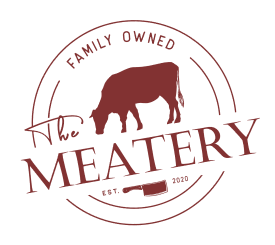What does Wagyu taste like?
The taste of Wagyu steak is often described as an extraordinary culinary experience that transcends traditional beef flavors. When you first bite into a properly prepared Wagyu steak, you'll notice an immediate burst of umami, followed by a rich, buttery sensation that literally melts in your mouth.
The distinctive flavor profile of Wagyu comes from its unique fat composition and marbling. Unlike regular beef, Wagyu fat has a lower melting point (around 77°F/25°C), which means it starts to melt at body temperature. This creates a remarkable texture that's often described as butter-like or velvety.
The taste can be characterized by several key elements:
- Sweet undertones - A natural sweetness derived from the intramuscular fat
- Nutty notes - A subtle, pleasant nuttiness that complements the beef's natural flavor
- Complex umami - An intense savory taste that lingers on the palate
- Tender texture - Unprecedented tenderness due to the meat's fine muscle fibers
Different cuts of Wagyu will offer varying taste experiences. For instance, the ribeye tends to be more intensely flavored due to its higher fat content, while the tenderloin offers a more subtle, delicate taste profile. The cooking method also significantly impacts the final flavor, with many experts recommending minimal seasoning to allow the meat's natural taste to shine through.
Wagyu Grades Explained
Wagyu beef grading is a complex system that primarily focuses on marbling, color, texture, and fat quality. The Japanese grading system, considered the gold standard, uses a scale from 1 to 5, with additional letter grades for marbling.
Here's a breakdown of the main grading levels:
- A5 - The highest grade possible, featuring exceptional marbling, perfect color, and ideal fat distribution
- A4 - Excellent quality with abundant marbling, though slightly less than A5
- A3 - High-quality beef with good marbling, still superior to most premium steaks
- A2 - Above-average quality with moderate marbling
- A1 - The lowest grade, though still better than many regular steaks
The Beef Marbling Score (BMS) ranges from 3 to 12, with 12 being the highest. Australian and Australian and American Wagyu often use different grading systems, though they attempt to correlate with the Japanese standards. often use different grading systems, though they attempt to correlate with the Japanese standards. For instance, USDA Prime (the highest US grade) roughly equals a Japanese grade of A3.
Wagyu Vs. Other Steaks
When comparing Wagyu to other premium steaks, several key differences become apparent. The most notable distinction lies in the meat's marbling pattern and fat composition. While USDA Prime beef typically shows visible streaks of fat, Wagyu's marbling appears as fine, web-like patterns throughout the meat.
Key comparisons include:
- Texture - Wagyu is significantly more tender than conventional steaks
- Fat Content - Higher percentage of intramuscular fat with better distribution
- Price Point - Genuine Wagyu commands premium prices, often 10-15 times more than regular steaks
- Cooking Requirements - Requires more precise temperature control due to its unique fat composition
Even compared to other Even compared to other premium cuts like USDA Prime or grass-fed organic beef, Wagyu stands apart in terms of its eating quality and overall experience. like USDA Prime or grass-fed organic beef, Wagyu stands apart in terms of its eating quality and overall experience. The difference is particularly noticeable in the way the fat renders during cooking, creating a uniquely rich and satisfying meal.
Why is everyone obsessed with Wagyu?
The Wagyu phenomenon has captured global attention for several compelling reasons. First and foremost, it represents the pinnacle of beef quality, offering an unparalleled dining experience that food enthusiasts eagerly seek out. The exclusivity and rarity of authentic Wagyu, particularly Japanese A5, has created a mystique around this premium meat.
Several factors contribute to the Wagyu obsession:
- Social Media Impact - Videos of marbled Wagyu being cooked have gone viral
- Celebrity Chef Endorsements - Many renowned chefs showcase Wagyu as the ultimate luxury ingredient
- Cultural Significance - The Japanese tradition and craftsmanship behind Wagyu production
- Status Symbol - Serving or consuming Wagyu has become associated with luxury and refinement
The growing interest in food culture and gastronomy has also contributed to Wagyu's popularity, as consumers become more educated about and interested in premium ingredients and unique culinary experiences.
Health Benefits And Nutritional Info
Contrary to what might be expected from its high fat content, Wagyu beef offers several notable health benefits. The fat composition in Wagyu is distinctly different from that found in regular beef, containing higher levels of monounsaturated fats and omega-3 fatty acids.
Key nutritional benefits include:
- Higher Conjugated Linoleic Acid (CLA) - Known for its potential anti-inflammatory properties
- Better Fat Ratio - More monounsaturated fats compared to saturated fats
- Rich in Essential Minerals - Including iron, zinc, and vitamin B12
- High-Quality Protein - Complete protein profile with all essential amino acids
Per 100g serving, Wagyu typically contains:
- Calories: 250-450 (depending on the cut)
- Protein: 25-30g
- Fat: 20-25g
- Iron: 3.8mg
What's fancy about Wagyu?
The "fancy" aspect of Wagyu extends far beyond its premium price tag. It represents centuries of careful breeding, meticulous animal husbandry, and strict quality control. The production of Wagyu beef, especially in Japan, is treated as an art form, with cattle farmers often considered artisans.
Notable luxury aspects include:
- Breeding Lineage - Pure Wagyu bloodlines are carefully maintained and documented
- Raising Methods - Cattle receive exceptional care, including regular massages in some cases
- Limited Availability - Strict export controls on Japanese Wagyu maintain exclusivity
- Presentation - High-end restaurants often present Wagyu with elaborate ceremonies
The extreme attention to detail in every aspect of Wagyu production, from feed selection to stress management of the cattle, contributes to its status as one of the world's most prestigious foods. Each cut is treated with reverence, and the preparation and serving of Wagyu has become a culinary art form in itself.









